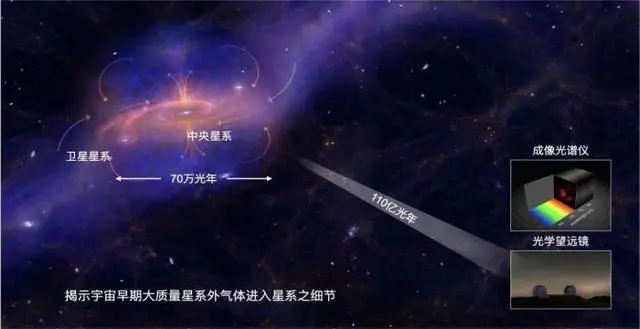The detailed process of galaxies accreting extragalactic gas and forming stars is a hot topic in astrophysics research. To unravel this mystery, an international team led by Professor Cai Zheng, including Professor RenYue Cen from Zhejiang University, collaborated to observe a massive gas nebula 11 billion years ago using the world's largest optical telescope, the Keck. Using an advanced imaging spectrometer, the Cosmic Web Imager, the team successfully detected hydrogen and various heavy element radiation in the surrounding gas of the galaxy and further estimated the large-scale spatial distribution of heavy elements. This also means that in the early universe, the gas surrounding galaxies was already rich in heavy elements.

This discovery provides a clear picture of how galaxies exchange matter with large-scale environments. Indicating that "recycling inflow" is an important mechanism driving the formation of massive galaxies in the early universe. This discovery takes a crucial step towards understanding the ecosystem, formation, and evolution of galaxies. In the future, combined with larger aperture and field of view spectroscopic survey telescopes, people are expected to reveal the full picture of star formation in galaxies.



